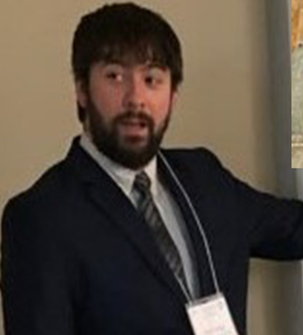Get to Know Mark Romig, TCP Mentor
Tell us about yourself! What is your background and experience in TESOL, and what inspired you to enter the field?
I've been in the TESOL field for about 10 years, and during that time I’ve held many different administrative and pedagogical roles. I started tutoring ELLs one-on-one in college, and this eventually led to working in an admissions office for international students. I then moved to NYC and began simultaneously pursuing an MA in Linguistics at the CUNY Graduate Center and working in a language lab where I helped ELLs use language learning technology. After graduating with that degree, I then decided to pursue an MA in TESOL at CUNY Hunter. This is where I began my study of TESOL in earnest. At the same time, I began teaching ELLs in both academic and community-based contexts. After graduating from there, I came to TC, and I have been working on my doctorate since. While at TC, I have been teaching various courses for MA students in CUNY Hunter and NYU’s TESOL programs on how to teach reading, writing, grammar, and vocabulary and on how to conduct second language acquisition research. While I don’t have any particular moment that inspired me to enter the field, I can confidently say that it is my students who inspire me everyday to continue to work in the field.
What has been the best part of mentoring in the TCP?
Of course, the best part of mentoring in the TCP is working with my mentees! I am always impressed with the creativity, zeal, and work ethic that mentees bring to their teaching!
How does the mentor/ mentee relationship work? What are some advantages of the TCP mentoring system?
As a mentor, I work closely with mentees as they plan, develop, and eventually deliver their lessons. In the planning stage, I like to think of myself as a sounding board for mentees as they brainstorm ideas related to what they want to teach. As mentees develop their lesson plans, I provide more individualized feedback that essentially asks them to make their ideas from earlier explicit and concrete. In doing so, my mentees and I are better able to see how each individual activity relates to the overall lesson objectives and to anticipate possible issues that may arise in class. Shortly after mentees deliver their lessons, we meet to discuss how the lesson went. Inevitably, there are areas that mentees want to improve upon, and I find myself often presenting several ways forward so that we can have an in depth discussion of which ones work best for each mentee. Outside of TCP, I cannot think of an environment where you receive such consistent, comprehensive feedback at every stage of teaching, and this is what makes it such a unique program.
Is there any advice you'd offer to future TCP students (new teachers or even veteran teachers looking to hone their skills)?
The most influential piece of advice given to me when I was a novice teacher was: “what are you doing for your students that they can do for themselves?” At first blush, this may seem like an obfuscation of responsibility, but this actually serves as a reminder that our students come with many, many years of lived experiences and that allowing students to do things like read directions, lead reviews of previously taught grammar or vocabulary, or explain new concepts can actually lead to greater learning gains than if you, the teacher, did them.
